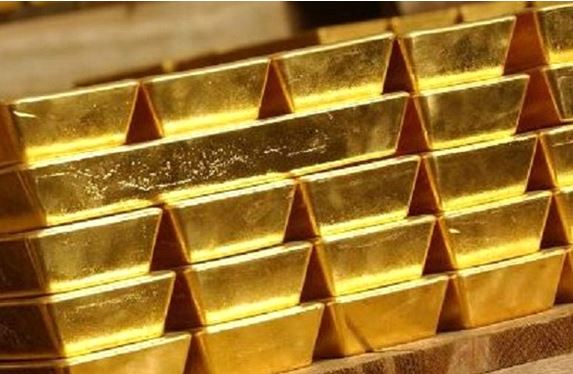While the Royal Ghana Gold Refinery’s inauguration is considered a major development for the country, it is unlikely to be the panacea for stabilising the cedi, Dean-University of Cape Coast (UCC) School of Business, Professor John Gatsi, has said.
The commentary follows recent remarks by Vice President Dr. Mahamudu Bawumia during the refinery’s opening ceremony in Accra. Dr. Bawumia had underscored the refinery’s potential to significantly enhance the value of gold reserves, hinting that this could bolster the cedi by backing it with gold.
“With the ability to locally refine our gold, we can now sell refined gold at its true market value,” Dr. Bawumia stated. “This will not only allow us to retain the economic benefits within our borders but also create numerous job opportunities for our youth. Moreover, government’s plan to refine all gold produced in Ghana will further enhance our economic independence and resilience.”
Dr. Bawumia also noted the economy’s strategic position as a leading gold producer, expressing optimism that the refinery will enable the country to leverage its gold resources to stabilise the cedi.
“We are poised to realise the significant benefits of our gold for the cedi’s management. With this refinery, value addition to our gold will be significant and we will move swiftly to back the cedi with gold,” he asserted.
However, Prof. Gatsi cautioned that while value addition to natural resources is a positive development, it is not sufficient on its own to stabilise the currency.
He emphasised that the success of using gold reserves to achieve currency stability largely depends on the volume of reserves Ghana holds. “Ghana has substantial gold deposits, but to truly control the factors affecting our currency-stability we need to significantly boost our gold reserves. Currency stability isn’t rocket science – if we fully back any increase in base money with a corresponding increase in gold reserves, stability can be achieved.”
Prof. Gatsi further argued that the mere establishment of a gold refinery is not enough to address the cedi’s volatility. “Currency stability cannot be reduced to the establishment of the first gold refinery in the country. It is more than that. There is a gold purchase program currently ongoing to build reserves, and there is gold for oil. These have not stopped the currency’s volatility and unbearable undulating price trends over the period,” he noted.
He also pointed out that the refinery is not wholly owned by the Bank of Ghana (BoG), which holds only a 20 percent stake while the Indian partners own 80 percent.
“It means 80 percent of the profit to be made may be subject to repatriation to India, as is the case for other foreign direct investments in the country – such as those in mining, telecommunications and large shopping malls. The net effect doesn’t favour currency stability,” he remarked.
Prof. Gatsi acknowledged that the partnership represents a sound real-sector intervention by the Bank of Ghana to support the economy, but added: “The benefits would have been pronounced for Ghana if the other partners were to be Ghanaians”.
Moreover, he noted that gold itself has shown a trend of volatility over the years. “The gold futures showed a downward trend in the 1980s and consistent volatility from 2010 to 2020. The Ghana cedi also shows the same volatile trend. Let us continue to build gold reserves and refine gold, but to ensure stable currency let us work on all the factors; especially those with pronounced weight.”
He concluded by stressing that the strength of a currency like the dollar or the economic stability of a nation like Switzerland is not merely due to gold reserves or gold refineries, but rather to the broader economic structures in place.
“The dollar is the strongest currency not simply because America holds the largest gold reserve and the economy of Switzerland is great not merely because it has the largest gold refinery (Valcambi SA) – it’s because of the structure, the accountability, transparency, productivity, inclusive growth and inclusive opportunities.”
Demand for foreign currency, Prof. Gatsi added, extends beyond gold purchases and includes many other transactions; necessitating that the Bank of Ghana also have the required supply volumes to meet these demands.















